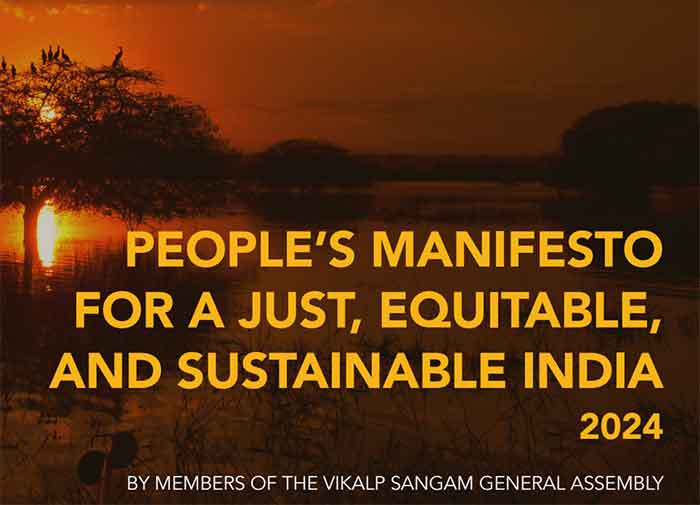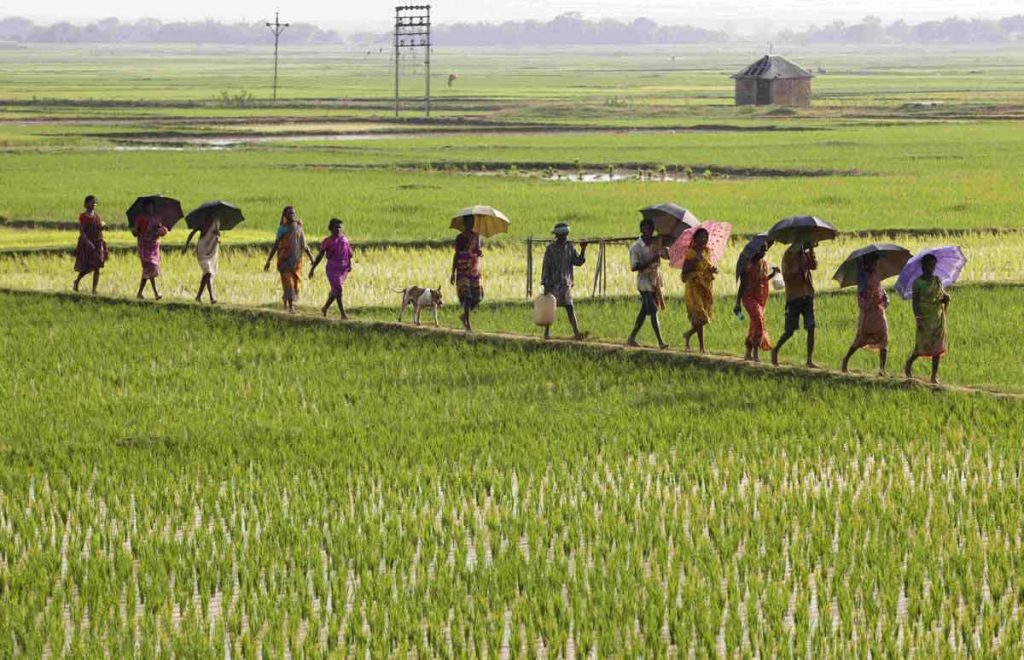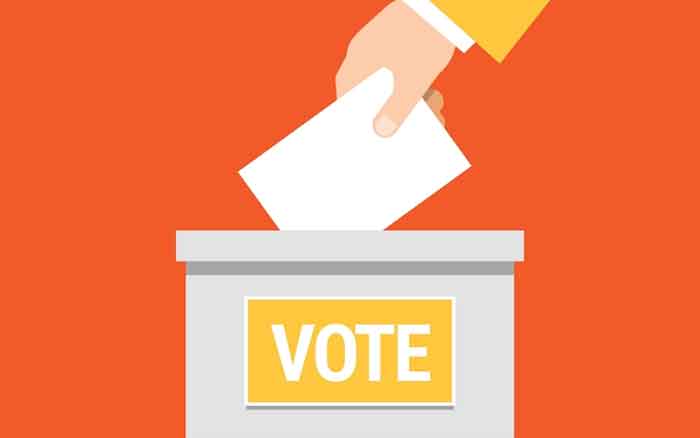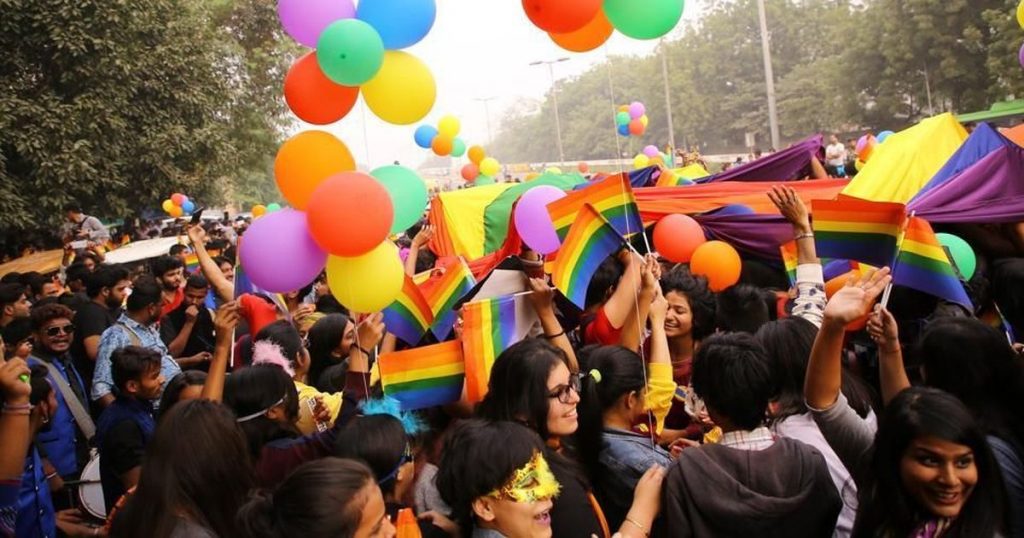Co-Written by Sandeep Pandey, Shreekumar, Shiva Shankar, R. Ramachandran, Lubna Sarwath, Mansee Bal Bhargava and Rajeev Yadav

Equality, Liberty and Justice lay the foundation of Indian Constitution for the citizens of India. Beyond the Indian Constitution document’s explicit mention of it, a real picture on the ground is different and that a large section of the communities are implicitly treated as not-so-equal citizens based on caste, class, creed, religion, gender, ethnicity, residency, language, literacy, age, health status and further goes into extreme with everything human-centric paying lesser regard to the biodiversity (flora-fauna). These differences are deep rooted and emerge as the fault lines for human rights abuses.
Among the abovementioned the category which is proving to be most rigid to overcome is the caste. Inspite of measures like caste based reservations and laws like the Scheduled Caste and Scheduled Tribe (Prevention of Atrocities) Act, 1989, the fact remains that we are far way from the ideal conceived by Dr. B.R. Ambedkar of annihilation of caste. Among the most recent incidents body of a Dalit woman was removed from the funeral pyre by upper caste men at a cremation ground in Agra and the Dalit President of the country was missing from the Ram Janam Bhumi temple foundation laying ceremony in Ayodhya in which the Prime Minister, Uttar Pradesh Governor and Chief Minister were present. We will finally annihilate caste when inter-caste marriages are encouraged, and all we have to do is let people choose their own spouses. In this respect, so called ‘honour killings’ should be most firmly dealt with. There should be a special law enacted to prevent this criminal manifestation of patriarchy. The Prohibition of Employment as Manual Scavengers and their Rehabilitation Act, 2013, prohibits manual scavenging, a dehumanizing task done by only a sub caste of Dalits, but there is no end to deaths of manual scavengers as they enter the septic tanks or sewer lines. Unless there is change is basic mentality of the society such caste based atrocities will continue. A common school system providing the same opportunity of education to every child in India can possibly provide the level playing field required to remove the discrimination due to socio-economic differences but no government in independent India has been willing to implement such a system. In fact, the gap between the quality of education systems and hence the opportunities resulting from it for the elite and poor continue to widen inspite of a Right of Children to Free and Compulsory Education Act, 2009 being in place. Apart from schools being made truly child-centric, the number of hours in school must be reduced so that the child has time for participating in play, community activities and productive work (not paid labour). The time spent in productive work must increase with age gradually in an organic manner. Education must never be seen as an economic investment. It must be a social investment. Campaign at education and social level is required to improve ethical, and truth disposition in thought, word and deed of humans.
The Scheduled Tribes and Other Traditional Forest Dwellers (Recognition of Forest Rights) Act, 2006 was meant to undo the historic injustice done to tribal communities, according to the then PM Manmohan Singh. However, the tribal communities still continue to be viewed as encroachers in the forest and hence being denied the benefits of this historic Act. Living in interior areas their issues never get any attention except when there is any violence involving Naxalites. Instead of examining the claims of persons from ST community, which may not always be verifiable and are open to the whims of officers, every adult should be allocated the 4 hectares of land, maximum permissible under the law, to do justice to this community.
Till date women have failed to obtain the proposed 33% reservation in Parliament and State Assemblies. The demand should be for 50% and the seats should be divided among different caste, religious and ethnic communities in proportion to their presence in population. Unequal wages and salaries for same work as done by men should be removed. Unpaid work done by women should be compensated in some manner. Cases of violence or sexual harassment against women must be dealt with strongly by the law implementation authorities. The rights of people with different sexual orientations – Lesbian, Gay, Bisexual, Transgender, Queer, Intersex, Asexual need to be respected and their presence in public spaces should be encouraged.
A law on the lines of SC & ST (Prevention of Atrocities) Act is required to counter violence like mob lynching or hate crimes, including speeches, instigated by communal and fundamentalist elements. Similarly law to prevent communal riots should also be in place. Incidents like daylight murders of intellectuals who disagree with dominant political narrative with a clear objective of stifling fundamental right to freedom of expression should be dealt with firmness by the authorities. There must be instruments to ensure that no official of the government can refuse to register a complaint about discrimination or atrocity based on caste, religion, gender, ethnicity, etc.
The difference in service conditions between the service sector and unorgnaised sector should be removed. Right to employment should be made a fundamental right under the Constitution and an Act similar to Mahatma Gandhi National Rural Employment Guarantee Act, 2005 for the urban areas and educated youth should be brought as well. There must be no limit on the number of days of work under such employment guarantee laws and a minimum annual income must be guaranteed. The labour laws protecting the rights and basic dignity of human beings should be honestly implemented. In fact, the state should not treat people in regular employment and in unorganized sector or in contract jobs differently. Universal Social Security for every employee, paid for by a part by the employer and a matching savings by employee (that will be financed fully to partly by the Government for all below a certain minimum income level) should be in place.
Draconian laws like the Unlawful Activites (Prevention) Act, 1967, Armed Forces Special Powers Act, 1958, The Jammu and Kashmir Public Safety Act, 1978, Section 124A of the Indian Penal Code which deals with sedition should be done away with as they have become instruments in the hands of governments to target their political opponents. Even ordinary citizens who participated in anti-Citizenship Amendment Act and National Register of Citizens protests are being slapped with criminal cases and being sent to jail. The UP government has taken an exteme position where it is bent upon recovering the cost of damages to public and private property during violence which occurred while protests were going on even before the crime of protestors can be proved. Such high-handedness, with clear aim to suppress culture of dissent, is a threat to democracy. The government’s recent tendency to keep people under prolonged detention, especially in Jammu and Kashmir, without filing any cases against them should be held to account as it is blatantly illegal.
The culture of impunity with regards to encounter killings and custodial deaths must come to an end. The killing of four rape-murder accused in Hyderabad in December 2019 or spate of encounter killings now numbering over hundred since Yogi Adityanath government came to power in UP in 2017 are signs of a failed criminal justice system where governments, police and to some extent people also justify such killings. Custodial deaths like that of a father and son in Sathankulam, Tamil Nadu, are another aberration of rule of law which need to be eliminated. There must be instruments to ensure that no official of the government can refuse to register complaints related to cases of fake encounters, torture and custodial death. While law enforcement officers should have right to self-defence, a very strong conditioning of the personnel should be mandatory to ensure that they are always able to hurt and disarm the offender but not kill. Police reforms should include inculcating respect for every human being irrespective of caste, class, religion, gender and ethnicity in a framework of universal approach to human rights. Recent role of Delhi and UP police, tainted with communal colour, hasn’t done the professional service any proud.
We support the human rights of soldiers, security and police personnel who get unnecessarily killed because of flawed government policies or strategies. For example, if the country was to resolve all its disputes with neighbours, which may require innovative solutions like joint management of disputed territories, that will prevent exchange of fire between armies. After all, not a single soldier got killed on either side of India-Tibet border for decades before the Galwan crisis. And for the first time there was firing on India-Nepal border. It is essentially policies of the governments which will determine whether there will be peace or conflict. Unfortunately the politics of jingoistic nationalism, with an objective to derive political mileage domestically, has worsened our relationship with all our neighbours. The problem of terrorism which affects all nations must be dealt with joint strategies. More people in Pakistan have been killed due to home grown terrorism than in India due to cross border terrorism. The governments must aim for peaceful and friendly relations so that armies and armament are not required for security and borders are kept open for citizens from either side to travel across, which is a popular demand in border areas, and will further enhance peace. Our security must derive from relationships based on trust. This will save precious lives of soldiers on either side of borders. Similarly, if the government actually concentrated on curbing the activities of criminals instead of targeting dissenting activists, incidents like the one in Kanpur in which precious lives of policemen were lost can be avoided. Often it is the state agencies which provide patronage to criminals as well as cross border smuggling and terrorism activities.
The laws for protection of environment or natural resources and developmental policies should not exacerbate the difference between rich and poor. It is seen that the process of development increasingly concentrates wealth in the hands of few urban elites at the cost of masses of poor living in rural or forest areas. The fruits of modern development, for example electricity, are inequitably distributed. This is against democratic principles and any development process should ensure equitable distribution of resources. There should be a strong deterrent against appropriation or exploitation of commons. Accumulation of enormous wealth has happened through such appropriation and exploitation. There must be taxes on any economic activity that is extractive in nature. Taxation must be designed to level the playing field for economic activities that are less resource-intensive and provide greater employment. Any economic activity that causes pollution (including carbon emission) or land-use change that reduces carbon-sequestration must be considered extractive. For simplicity, such a tax may be called a carbon tax. Further, land-use planning must be based on principles of ecological sustainability, taking micro-watersheds as units. No project must be allowed in violation of local land-use plans.
Growth in Gross Domestic Product and profitability of business must never be at the cost of fundamental rights of anyone. Guaranteeing fundamental rights must always have overriding priority. Policies and laws that facilitate private profit at the expense of fundamental rights must be considered unconstitutional. There should be a tax on wealth above a certain limit with telescopic rates. Wealth tax is necessary to contain capitalist growth that has proven that trickle down approach has only increased income and wealth inequalities. Revenue from taxes on wealth and extractive economic activities must be used for restoring the environment. People should be given employment in eco-restoration activities. MNREGA can be used for this purpose. Production by resource-intensive, labour-saving technologies must be discouraged by tax policies. Tax policies must be fine-tuned in the light of experience, keeping in mind employment as well as state of the environment. Is there any other way to address the climate crisis, while guaranteeing livelihoods to all? The above suggestions can also reverse the trend of people moving from agriculture to other sectors of the economy. Agriculture must not be seen as meant only for providing food and nutrition for all. It is unmatched in its potential for employment. It also has a crucial role in repairing the damage we have already done to the environment. Agriculture must include, in addition to producing food, improving soil fertility, restoring water security and protecting biodiversity. The government must invest in training farmers in such holistic agriculture. Instead of subsidising artificial fertilizers, agricultural machinery and electricity, a carbon tax must be levied on them. However, a minimum income guarantee must be given to anyone making a transition from extractive agriculture to sustainable agriculture, during the transition. The government must fix minimum support prices for agricultural produce, attractive enough for agriculture to remain attractive.
Guaranteeing livelihood, food security, healthcare and education, and protecting the environment must be fundamental duties of the state.
Sandeep Pandey, Shreekumar, Shiva Shankar, R. Ramachandran, Lubna Sarwath and Rajeev Yadav are social activists
SIGN UP FOR COUNTERCURRENTS DAILY NEWSLETTER
















































